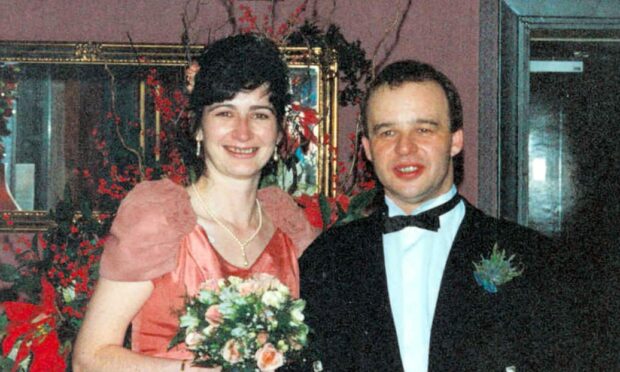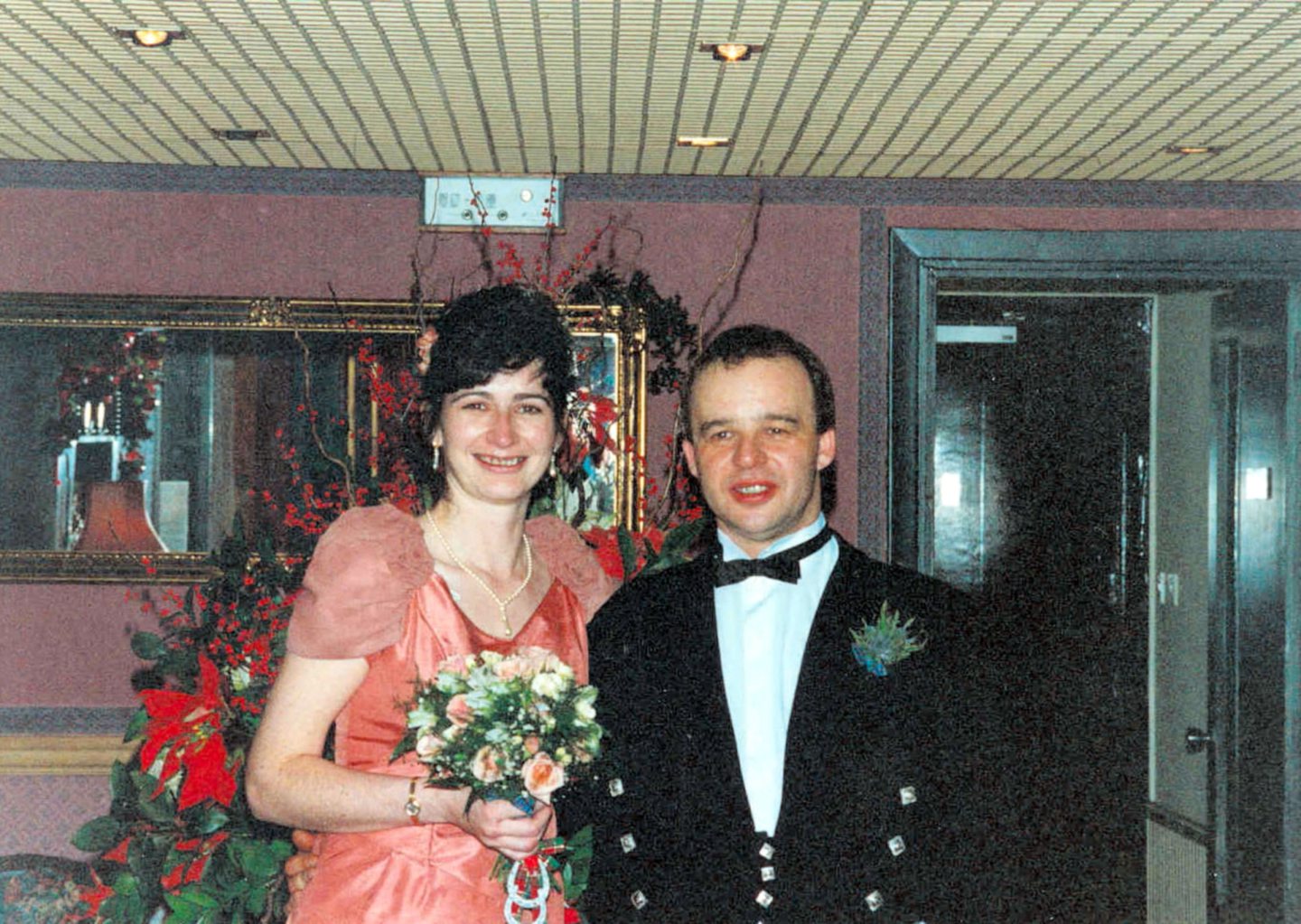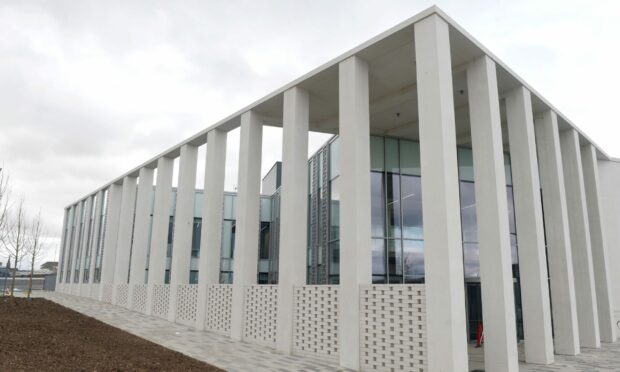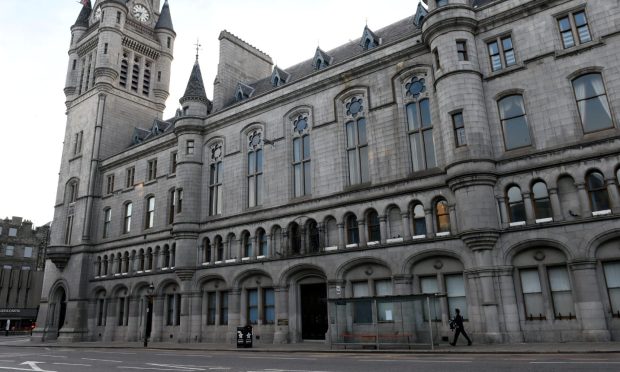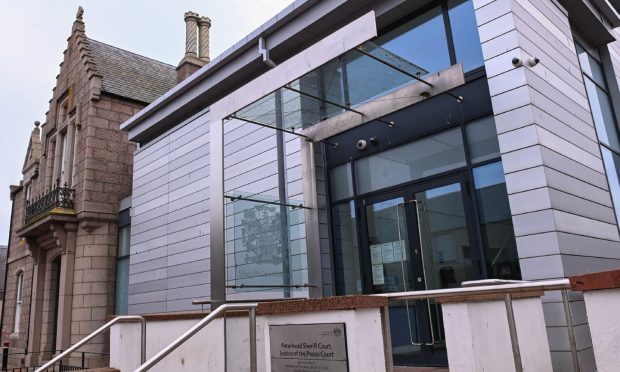An Aberdeen wife-killer took his own life in prison after becoming depressed about his chances of being released from custody.
Richard Farquhar’s mental health declined after HMP Greenock chiefs stopped moves to prepare him for release, a Fatal Accident Inquiry (FAI) has heard.
Farquhar was serving a life sentence for killing wife Anne with a kitchen knife as they drove along the A90 Aberdeen to Stonehaven road.
Sheriff Andrew McIntyre today issued a judgment detailing his findings about how Farquhar died at the west coast prison on March 14 2019.
The FAI was told Farquhar was aged 61 when he slashed his own throat.
Sheriff McIntyre wrote of how in the months before Farquhar’s death, prison bosses were preparing him for release.
He initially “loved” his placement at a charity shop but it stopped after a staff member started feeling uncomfortable with Farquhar when alone with him.
He told officials that he had been preparing the shop for Christmas and it “triggered memories” about what he had “lost” from being convicted of murder.
Prison staff stopped the placement and halted moves to have him released from custody.
He was also ordered to attend sessions with a psychologist.
But officials who sat on the prison’s risk management team, which monitored Farquhar, didn’t provide him with detailed plans on how he could resume work for his release.
The team also didn’t give him a timescale into when the psychology sessions would take place.
In his judgment, Sheriff McIntyre concluded that had these actions taken place then Farquhar’s death may have been avoided.
He wrote: “I have found that Mr Farquhar committed suicide following a decline in his mental health contributed to by his suspension from a community placement.
“In particular I have found that: delay, a lack of joined-up working, and insufficient communication with Mr Farquhar, all contributed to him becoming distressed by his lack of progress, and to opportunities to avert that distress being missed.
“I find that those omissions contributed to his death.”
Killing on the A90
A jury at the High Court in Edinburgh heard that on the day of the murder – January 18 2008 – Farquhar persuaded his estranged wife to get in his car.
As they drove along the A90, other motorists could see they were having a row and watched in horror as Farquhar stabbed Anne with a kitchen knife.
Farquhar phoned police and when they met him on the city’s Riverside Drive they found Anne slumped in the front seat. Farquhar told police he had intended to kill himself that day.
Judge Lord Brailsford ordered Farquhar to serve at least 12 years in custody.
The judgment tells of how Farquhar was first diagnosed with anxiety and depression in 1981.
He also attempted suicide just three months after being sent to prison.
The judgment tells of how in the months following the decision to stop his placement, medical staff carried out assessments on Farquhar.
He had initially reported feeling depressed but later told them that his mood was improving.
Sheriff McIntyre said staff who had assessed Farquhar acted correctly and couldn’t be criticised.
However, Sheriff McIntyre assessed the case and made four recommendations for prisoners who in the future find themselves in similar positions to Farquhar.
He recommended that prison risk management teams keep timescales on the completion of tasks needed to ensure the release of prisoners from life sentences.
Sheriff McIntyre also recommended that prisoners are with “sufficient, accurate and timely information” about plans to release them from custody.
The third recommendation was for prison officials to devise risk assessments for prisoners who find themselves in Farquhar’s position.
And he also recommended that risk management teams who decide to end community placements in ‘adverse’ circumstances include medical staff in their decisions on how to prepare prisoners from custody.
Sheriff McIntyre wrote: “Taken together, if implemented, they should support those working within prisons in their duty to safeguard the wellbeing of prisoners.
“They should make it easier to identify and address risk thereby relieving the inevitable distress caused when unforeseen risks materialise with tragic consequences.
“Most of all, however, it is hoped that the recommendations will avoid other deaths in circumstances similar to those of Mr Farquhar.
“I conclude by extending the condolences of the Court to all those affected by Mr Farquhar’s death.”
For all the latest court cases in Aberdeen as well as crime and breaking incidents, join our Facebook group.
